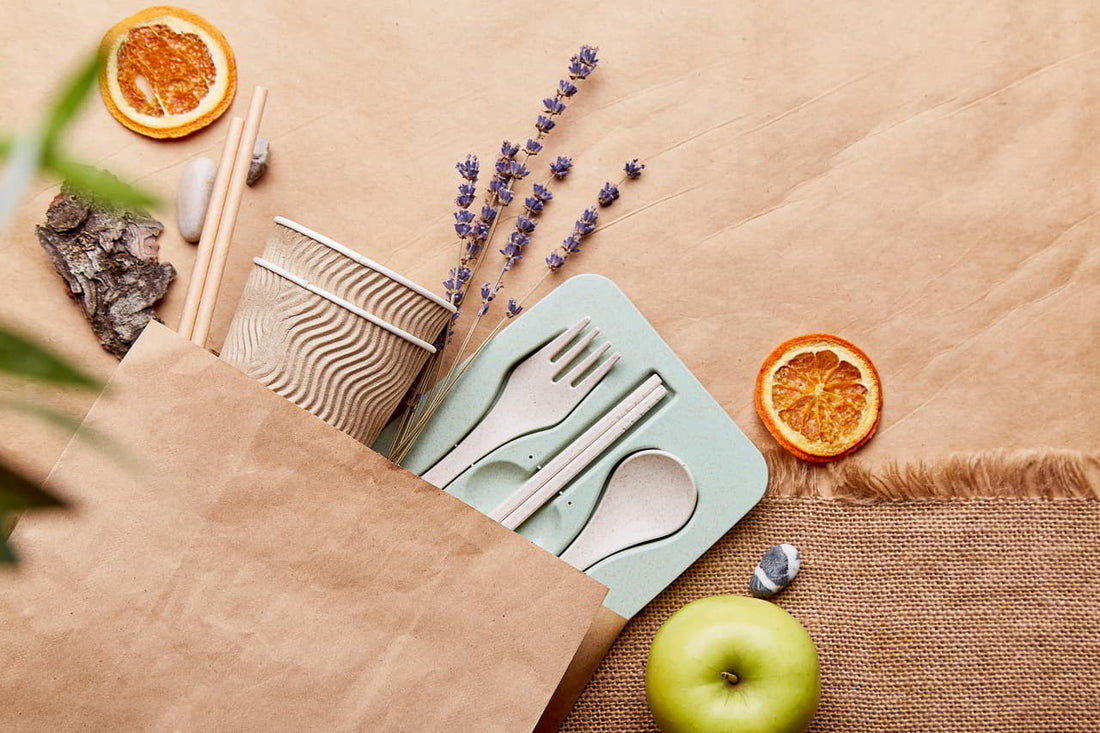In today's market, sustainability is more than a buzzword; it's a commitment to future generations. This notion rings especially true in the kitchenware industry, where one’s choice of materials directly impacts both the environment and people’s health.
Adapting to sustainable practices is not merely a nod to global trends, but a smart, forward-thinking business strategy. We're here to help kitchenware brands manufacture products using sustainable materials, ensuring your new product range resonates with eco-conscious customers. It will also showcase your brand's dedication to environmentally responsible practices.
Evaluating Material Options
Stainless Steel
Durability: One of the compelling attributes of stainless steel is in its robustness. Its resistance to corrosion, staining, and rust is of paramount importance in kitchen environments where moisture and varying temperatures are the norm.
Recyclability: Stainless steel stands out from the crowd for its ability to be 100% recycled. It can be melted down and re-forged without losing any of its quality.
Chemical Neutrality: Unlike some plastics and other materials, stainless steel does not leach chemicals into food, ensuring a safer cooking and eating experience.
Glass
Recyclability: Glass is a well-respected material in the recycling domain. It can be recycled endlessly without any loss in quality or purity, making it a sustainable option.
Longevity: Its ability to withstand the test of time, unless broken, makes glass a lasting companion in the kitchen.
Inert Nature: Glass does not chemically react with food or beverages, so it maintains both the taste and integrity of its contents while ensuring a chemical-free experience.
Wood
Renewability: When sourced from responsibly managed forests, wood emerges as a renewable resource. The key lies in ensuring the wood is sustainably harvested, with new trees being planted to replace those cut down.
Biodegradability: Wood can return to the earth at the end of its lifecycle, naturally biodegrading without leaving any toxic residues.
Carbon Sequestration: Wood has the innate ability to store carbon, playing its role in the fight against climate change.

Silicone
Durability: Silicone's resilience to extreme temperatures affords it a longer lifespan when compared to conventional plastics, thus reducing the frequency of the need for replacement.
Chemical Stability: Unlike some plastics, silicone doesn't leach harmful chemicals, making it a safer choice for applications where it comes in direct contact with food.
Recyclability: Silicone can be recycled, although it must be noted that the process required is not as simple as when compared to recycling glass or stainless steel.
Bioplastic
Reduced Carbon Footprint: Bioplastics often have a lower carbon footprint when compared to traditional plastics as they are derived from renewable resources such as corn or sugarcane.
Composting: Some bioplastics are compostable at industrial composting facilities, providing an end-of-life solution to divert waste from landfills.
Resource Efficiency: The manufacture of bioplastics can be more resource-efficient when compared with conventional plastics, as they often use less energy and water in the production process.

Understanding Sustainability in Kitchenware
Embarking on the path of sustainability is a nuanced endeavour for kitchenware manufacturers. It is a journey extending beyond the selection of eco-friendly materials.
A truly sustainable kitchenware product is the result of thoughtful consideration throughout its entire lifecycle, from the initial sourcing of raw materials to its eventual end-of-life disposal. Here are a few factors to consider:
Certifications and Standards
Look for certifications like the Forest Stewardship Council® (FSC®) for wooden products or Cradle to Cradle Certified for an array of product materials. These certifications ensure the materials are sustainably sourced and produced.
Engaging with Suppliers
Engage with suppliers who are transparent about their sourcing and manufacturing practices. It's crucial for kitchenware product manufacturers to partner with suppliers who share your environmentally conscientious values and are willing to provide documentation verifying the genuine sustainability of their materials.
Assessing Lifecycle Impacts
Consider conducting a lifecycle assessment (LCA) to evaluate the environmental impacts of different materials incorporated into an item’s structure over the entire lifecycle of the product. An LCA can provide insights into emissions, energy consumption, and waste generation associated with each material, helping you make an informed decision.
Consumer Education
Educate your customers on why sustainable kitchenware matters to the world, and how to care for these products to maintain their intended lifespan. Providing this information to your audience helps to build trust and loyalty among your clientele.
Sustainable Innovation
Continual innovation is key to advancing sustainability in the kitchenware sector. Invest in research and development to explore new materials and designs to further reduce the environmental impact of your products.
Iterative Observation, Analysis, and Improvement
Adopt a culture of continuous improvement by regularly monitoring the performance of your sustainable products to enhance their eco-friendly capabilities. This could include exploring new materials, optimising manufacturing processes, or partnering with more environmentally sustainable suppliers.
Steering Your Kitchenware Brand Towards Sustainability
Choosing sustainable materials for your kitchenware products is a detailed yet rewarding endeavour. It not only reflects your brand's commitment to environmental stewardship, but also favourably positions your products in a competitive marketplace, which is increasingly being driven by eco-conscious consumers.
By evaluating material options, engaging with responsible suppliers, and assessing lifecycle impacts, your brand can make informed decisions that contribute to a greener and more sustainable kitchenware industry.



A Life – Your Sustainable Multi-Material Manufacturer
The path towards sustainability in the kitchenware sector is a gratifying enterprise, bringing value to both your brand and the overall environment. Partnering with a seasoned sustainable product manufacturer like A Life can significantly ease you through this transition.
With a diverse portfolio of sustainable materials and an unyielding commitment to eco-friendly product development solutions, A Life stands as a reliable ally on your brand's green journey. Reach out to us and together we can shape a sustainable future for you, your family, and your customers.


